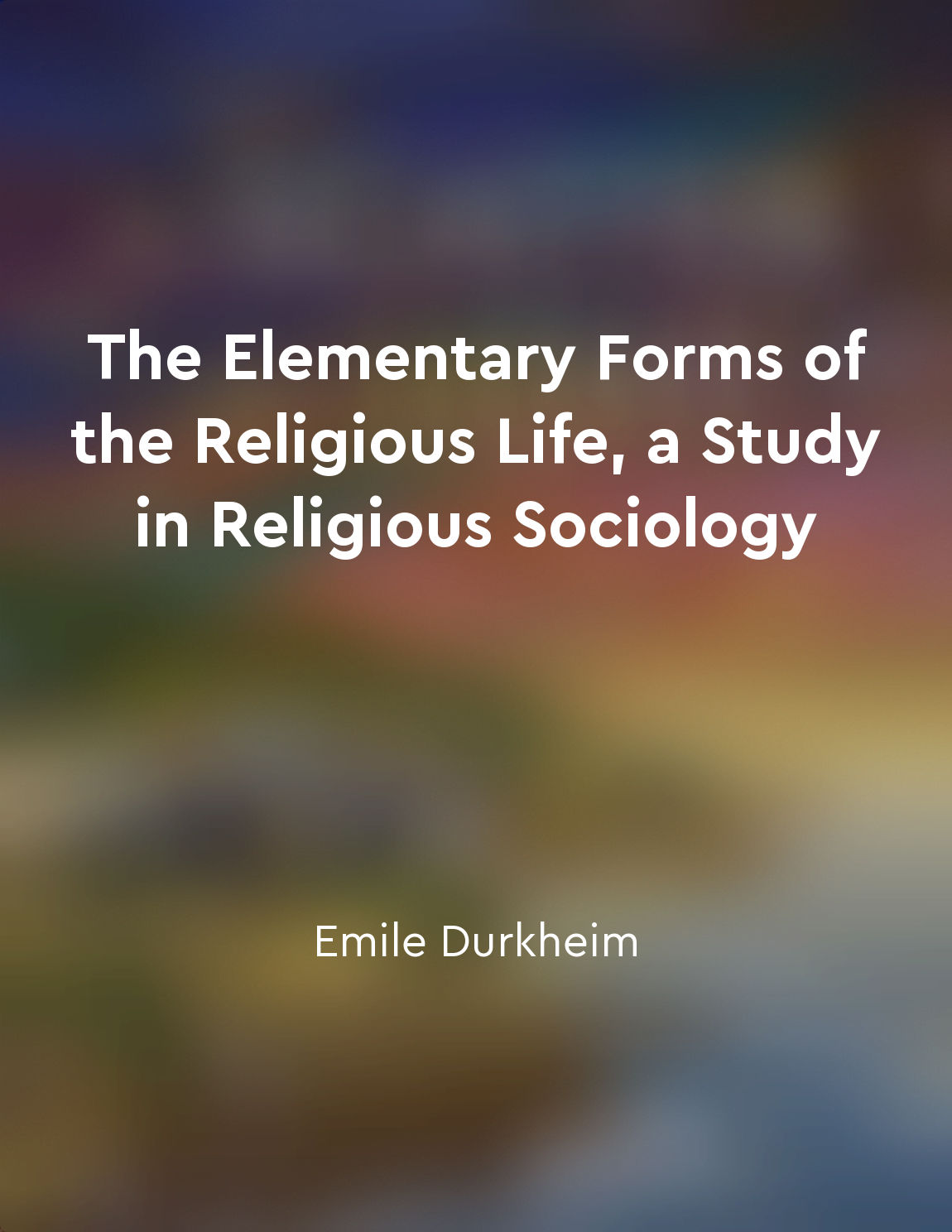It creates social cohesion and solidarity from "summary" of The Elementary Forms of the Religious Life, a Study in Religious Sociology by Emile Durkheim
Durkheim argues that religious beliefs and practices play a crucial role in creating social cohesion and solidarity within a society. Through shared rituals and beliefs, individuals come together to form a collective consciousness that binds them together. This sense of unity is essential for maintaining social order and harmony. Religion serves as a powerful force that reinforces the values and norms of a society, providing a moral compass for individuals to follow. By participating in religious ceremonies and practices, individuals reaffirm their commitment to these shared beliefs and values. This shared sense of purpose helps to strengthen social bonds and promote cooperation among members of the community. Durkheim emphasizes the role of religion in promoting a sense of belonging and connection to something larger than oneself. By worshiping a transcendent being or power, individuals feel connected to a higher purpose and to each other. This sense of belonging fosters feelings of solidarity and mutual support among members of the community. Through religious rituals and symbols, individuals are able to express their shared values and beliefs in a tangible and visible way. These rituals serve as a form of collective representation that reinforces the shared identity of the group. By participating in these rituals, individuals reaffirm their commitment to the group and strengthen their bonds with one another.- Durkheim argues that religion is essential for creating social cohesion and solidarity within a society. By providing a shared set of beliefs, values, and practices, religion helps to unite individuals and strengthen the social fabric of a community. This sense of togetherness is crucial for maintaining social order and promoting cooperation among members of a society.


